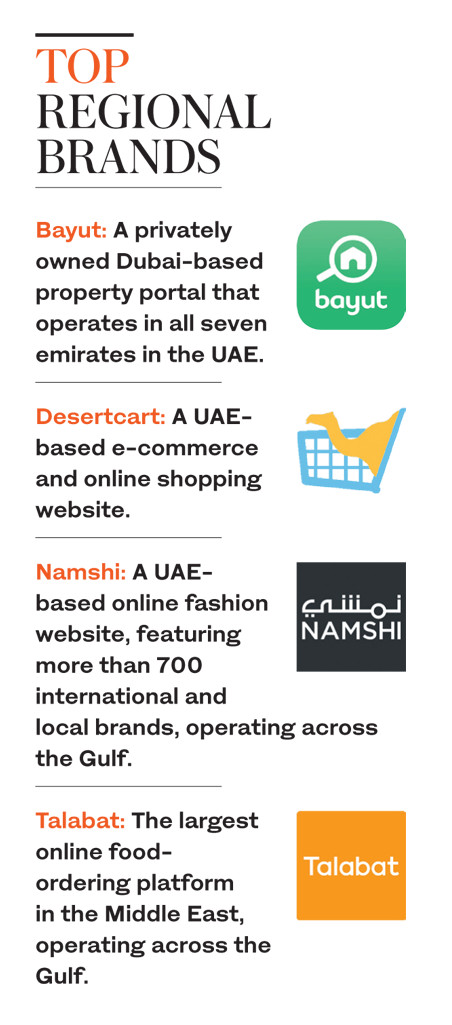DUBAI: A number of start-ups in the Middle East are being bought up by global giants, and while some might fear the loss of a home-grown identity, experts say the deals are recognition that local companies know their markets best.
It all started in 2009 with Yahoo!’s acquisition of Jordanian company Maktoob.com. The Amman-based online services company, founded in 1998, was known for being the first Arabic-English email service provider. It later became Yahoo!’s official arm in the Middle East and North Africa (MENA).
In 2017, Amazon purchased the e-commerce platform Souq.com for $580 million. In the UAE, the website was recently rebranded as Amazon.ae, although parts of the Middle East, such as Egypt and Saudi Arabia, were not included in the rebranding.
In April 2018, UAE-based online classifieds website Dubizzle was fully acquired by Naspers, a South Africa-based investor, through its subsidiary OLX Group, for $190 million, following its partial acquisition in 2013. The company was valued at $400 million. This year, global ride-hailing firm Uber Technologies acquired its regional rival Careem for $3.1 billion.
 Experts speak of a growing trend in global companies buying smaller businesses in the region.
Experts speak of a growing trend in global companies buying smaller businesses in the region.
“As the start-up ecosystem in the region matures, and more venture-backed companies successfully scale across the region and internationally, it’s natural that they catch the eye of international players in similar domains that see an acquisition as a natural extension of their product offering to a new market,” said Philip Bahoshy, CEO and founder of MAGNiTT, a database for start-up information across MENA. “This is the case that we’ve seen in Souq, Careem and Maktoob to date.”
MAGNiTT has seen an acceleration in recent years of such acquisitions, with 12 registered in 2019 so far, compared to 17 in all of 2018.
“Founders have a feather in their hat for growing a company large enough and interesting enough for acquisition, (which allows them) to use this as a key success factor for future ventures,” Bahoshy said.
“In the cases of Careem, Souq and Maktoob, and all companies based in MENA, a key factor for their success is that they’ve found specific solutions that cater to the local or regional needs of their consumers, which are completely different to competitor firms based in the US, Europe or Asia.”
Careem CEO Mudassir Sheikha said one of the most prominent features of the Uber deal is that it allows Careem to stay independent. “We’ll remain a separate brand and organization, which means we get to keep our purpose, values and culture,” he said following the acquisition.
“We’ll continue to pursue our platform vision to go after the massive opportunity that still lies ahead of us, but do it faster with Uber’s resources and expertise.”
Sheikha called the deal a “lift-off moment” for MENA. “A transaction of this magnitude puts the region’s emerging technology ecosystem squarely on the map of regional and foreign investors,” he said. “It’ll radically and irreversibly enhance the support and funding opportunities for local entrepreneurs.”
For Souq and Amazon, the main element of change for customers was adding the Arabic language to both the mobile app and the website. Amazon.ae now features more than 30 million products from local and international businesses, including products previously available on Souq and 5 million products from Amazon US.
“Amazon.ae brings together Souq’s local know-how and Amazon’s global expertise, something we believe will be of significant benefit to UAE customers,” Ronaldo Mouchawar, co-founder of Souq and vice president of Amazon MENA, said last week.
Local companies that have not been acquired, such as Desertcart, believe such moves are good news for new start-ups in the region.
“I’ve lived in the UAE for a while, and we’ve always had a large number of international companies and brands around, so it’s not surprising to see the acquisitions happen,” said Desertcart founder Rahul Swaminathan.
Although he does not see much of a difference for customers either way, he said the acquired companies were fairly simple clones of existing businesses, and were planned from the start to be acquired. “It looks like both Uber and Amazon overlooked how much international growth there would be, and had to pay for their mistake with acquisitions,” he added.
“Uber has already lost in India, China and a few other countries, and Amazon got in really late in the game as well.” He said a lot of existing companies do not want to repeat the same mistake, so they are acquiring businesses in MENA and worldwide, especially when they have “lots of easy capital.”
But “existing start-ups have learnt their lessons, and new start-ups will learn their lesson from history,” he added.
“They’ll probably focus on expanding globally earlier on, and raise more money earlier to do it.”
Although Swaminathan believes that there is some advantage in having a local presence, he said the major cost of these start-ups is marketing, user acquisition and building software.
“Desertcart started as a local company, and the advantage that Dubai offers over the rest of MENA for business means we’ll always have our main offices here,” he added. “However, we’re also making sure we don’t miss out on international opportunity and expanding as fast as possible.”
Bahoshy said one of the cons of being acquired that is often mentioned is that it may lack aspiration, although the trend remains a very positive indication of growth for the MENA start-up scene. “As investors and founders continue to learn from the successful exits, they can gain confidence to go on and scale beyond the region, and once the process for start-ups in the region is made simpler and more start-up-friendly, you may see more companies listing on local markets,” he added.





























